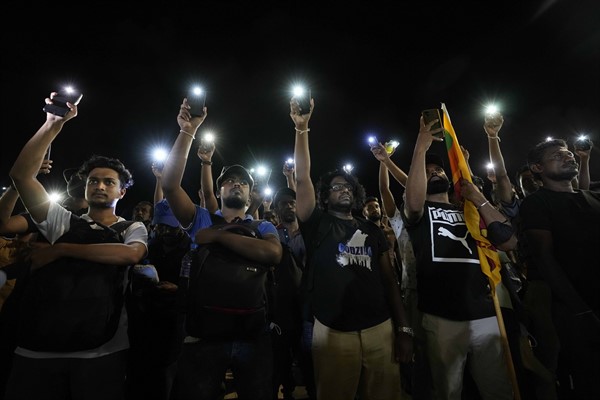The ongoing economic and political crisis in Sri Lanka demonstrates more than ever that geopolitical rivalry fosters myopic decision-making, and that peace is a prerequisite for intergenerational justice.
Sri Lanka is facing an unprecedented emergency. Decades of financial mismanagement by governments dominated by the family of President Gotabaya Rajapaksa, combined with the effects of the COVID-19 pandemic and the Russia-Ukraine war, have now left the country on the brink of economic collapse. For the first time since independence in 1948, Sri Lanka’s government announced that it will be defaulting on all $51 billion of its sovereign debt, as it seeks an urgent bailout from the International Monetary Fund.
This economic crisis has now set the stage for humanitarian and political crises. With Sri Lankans unable to keep up with the rate of inflation in food prices, which recently hit 25 percent, the population is at risk of starvation. And anger at this state of affairs has sparked widespread protests that risk turning violent, as mistrust toward the ruling party, police and military continues to grow.

